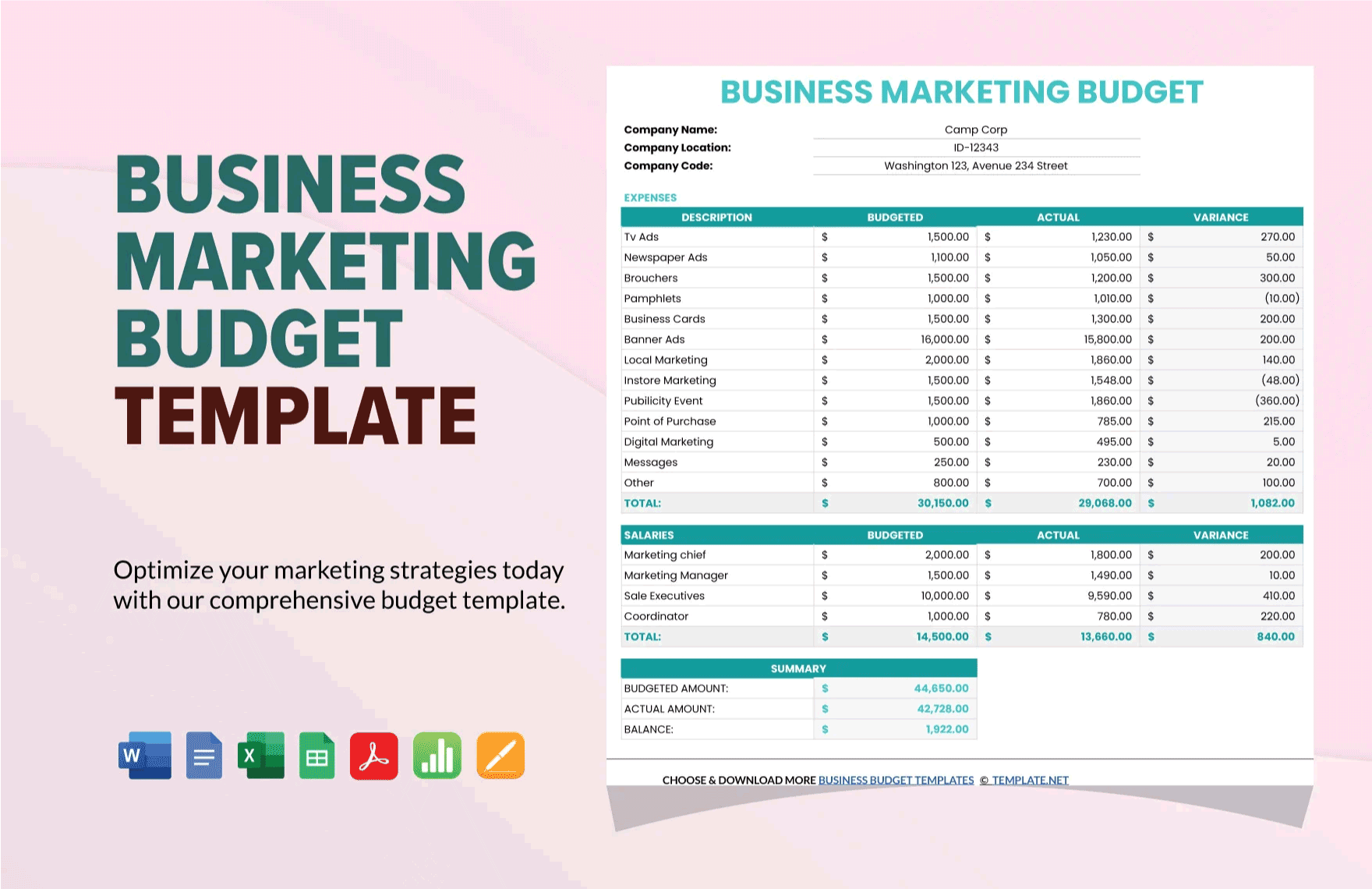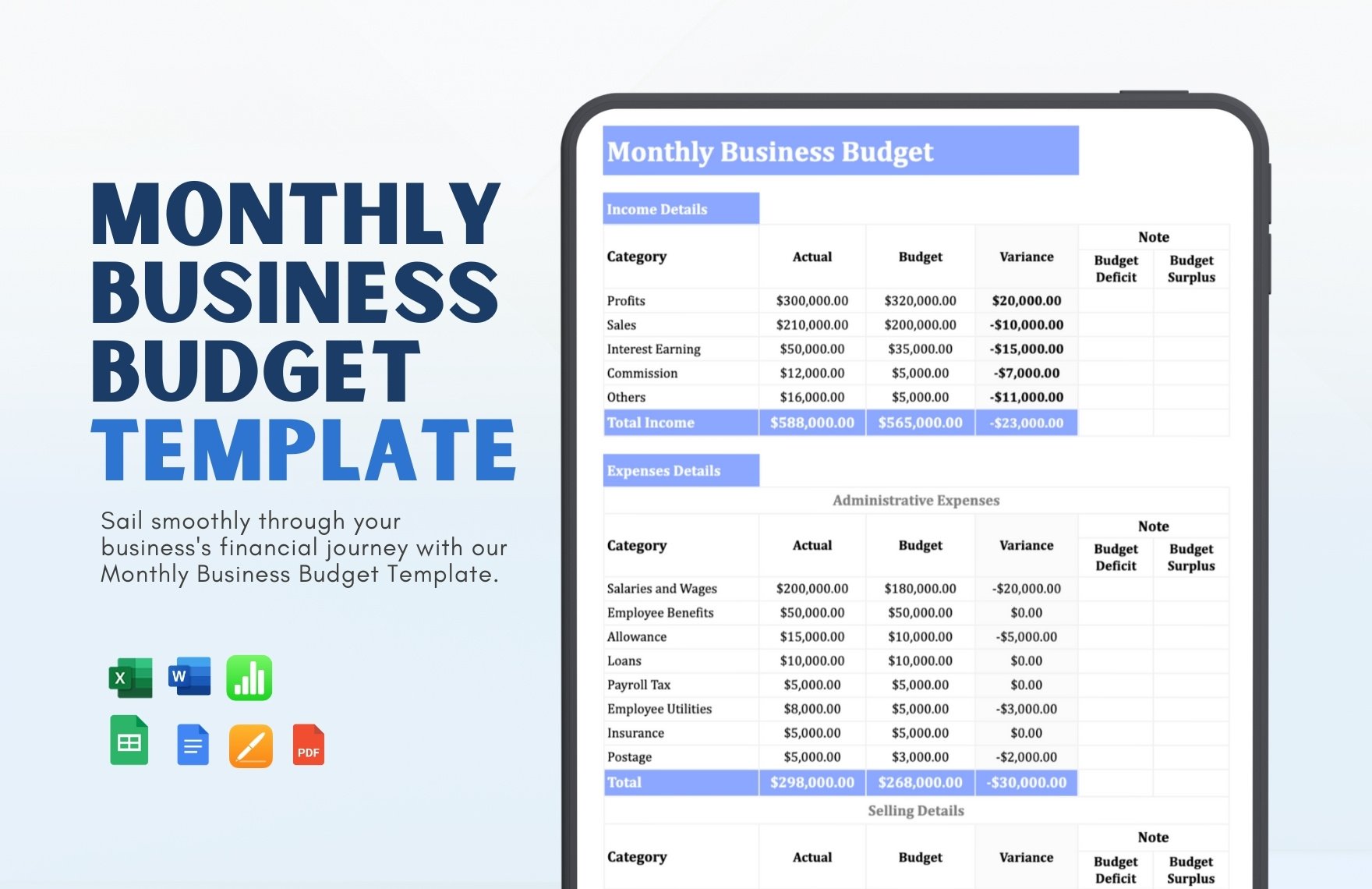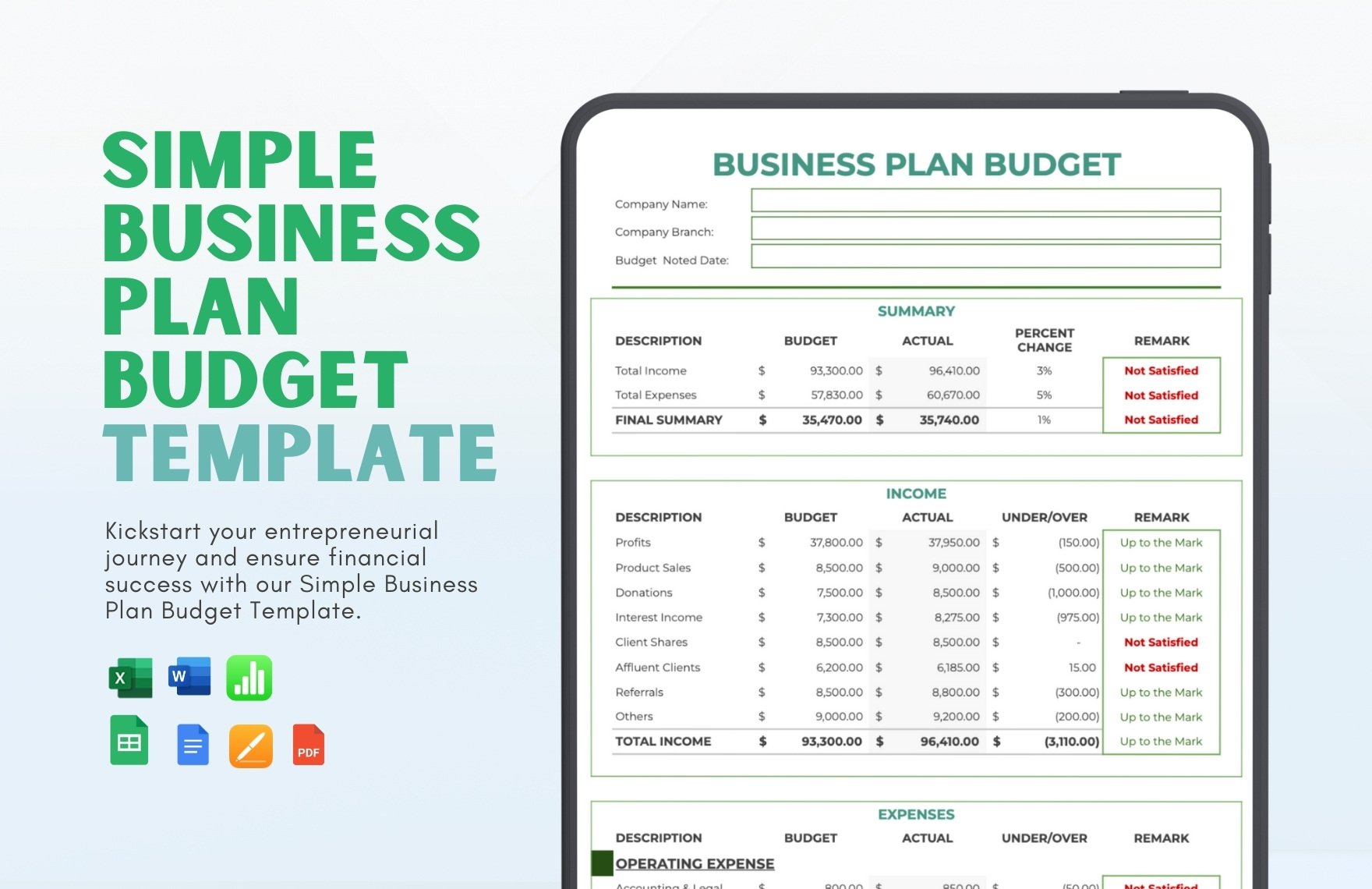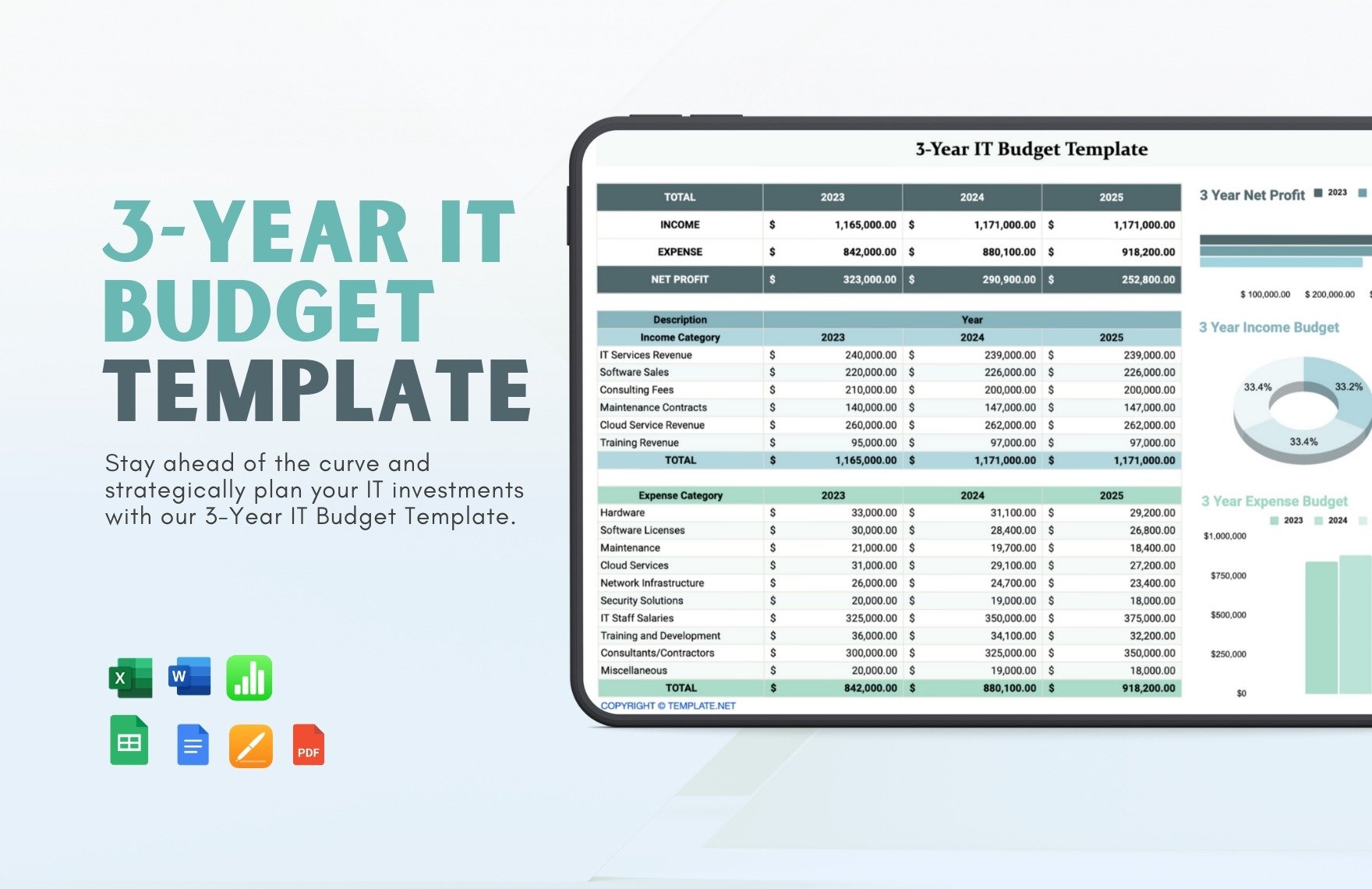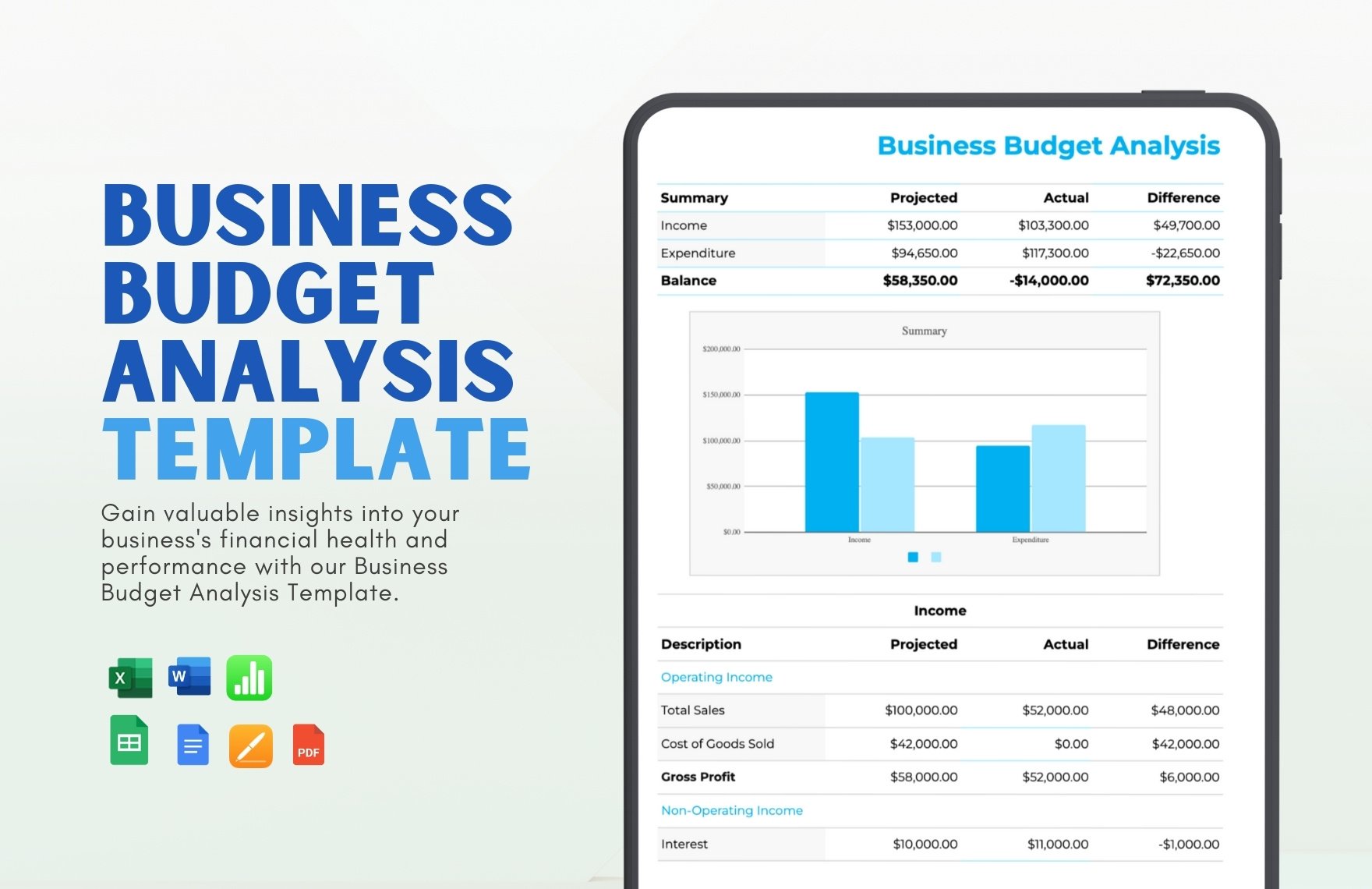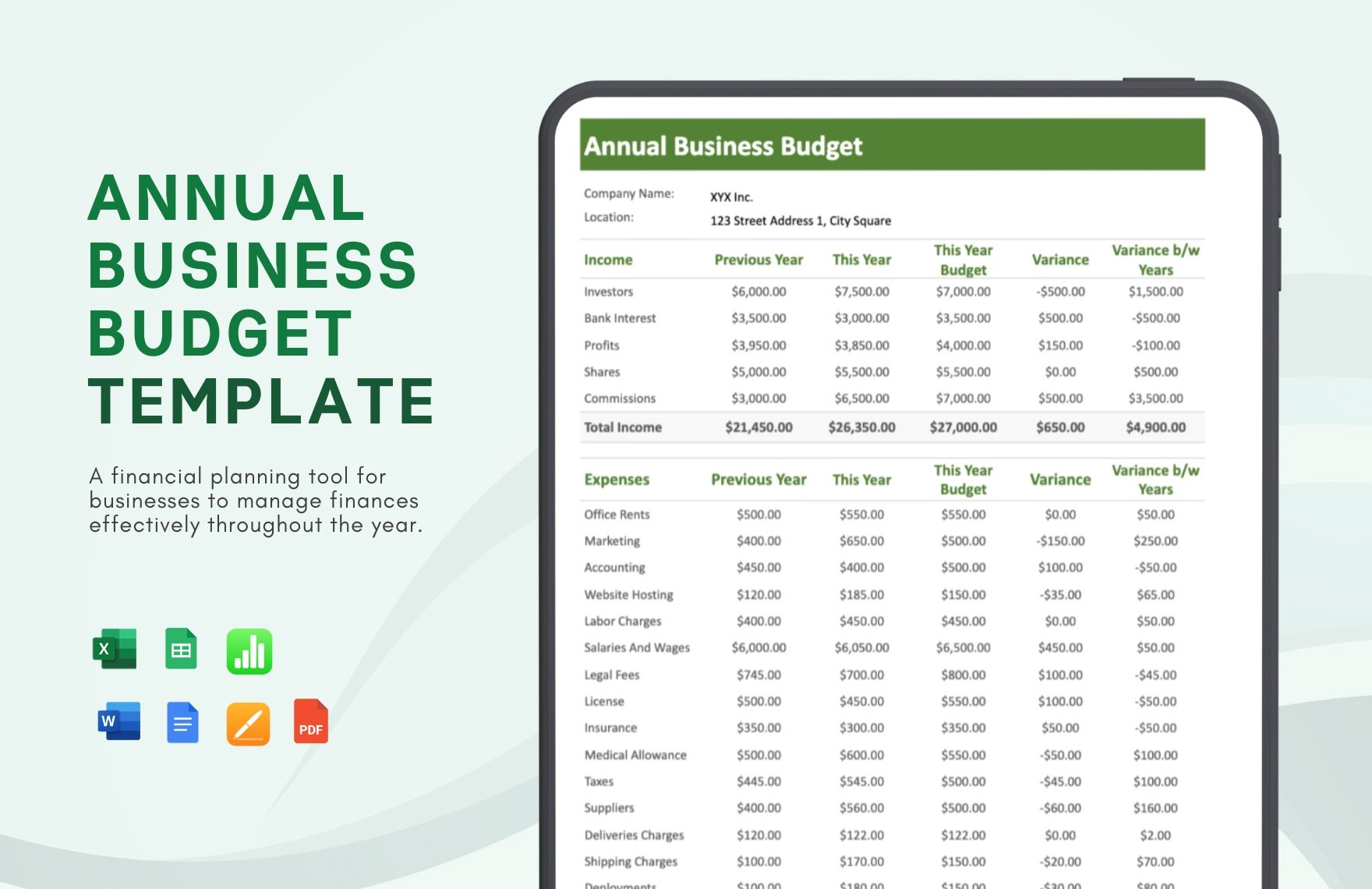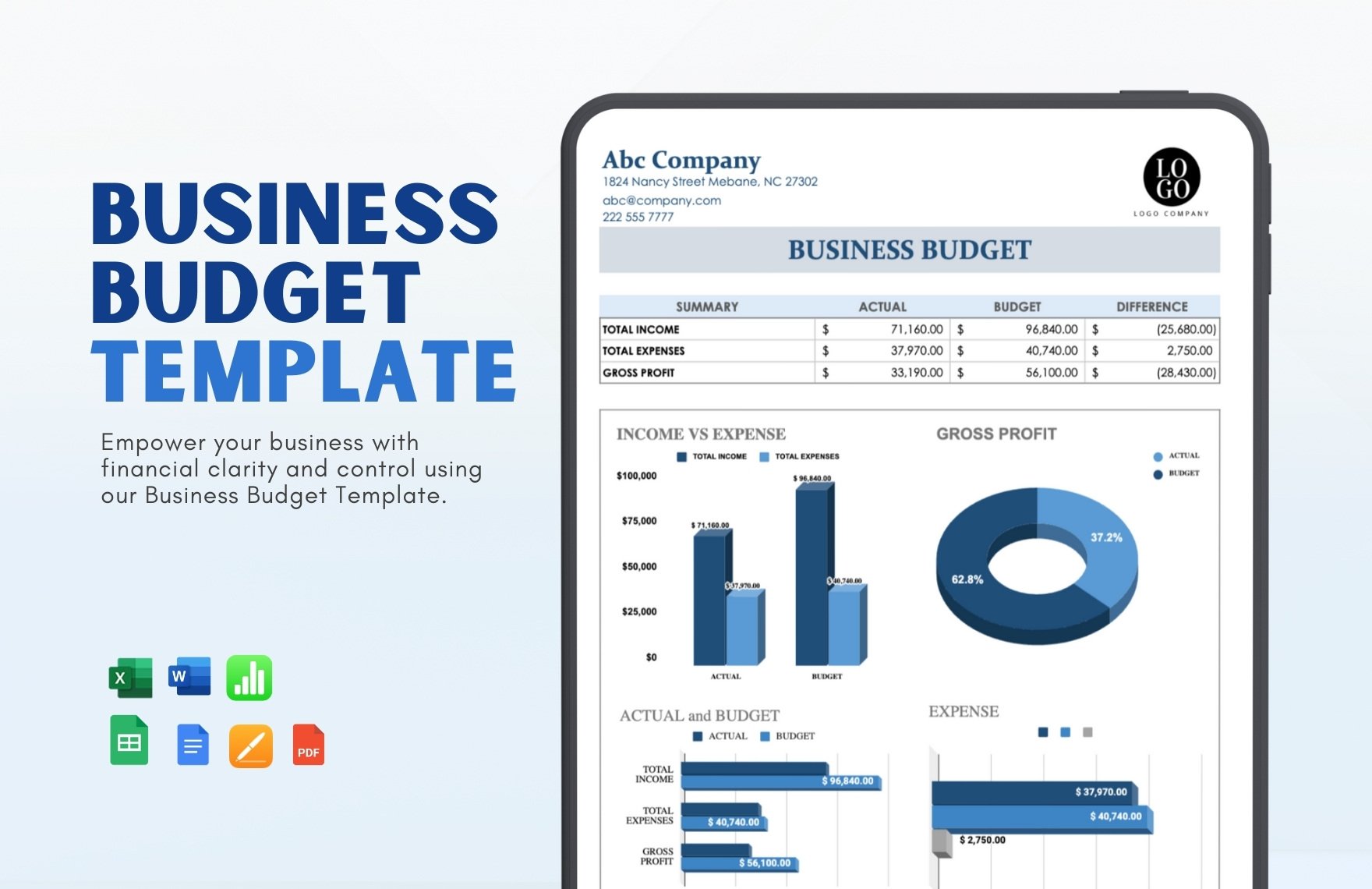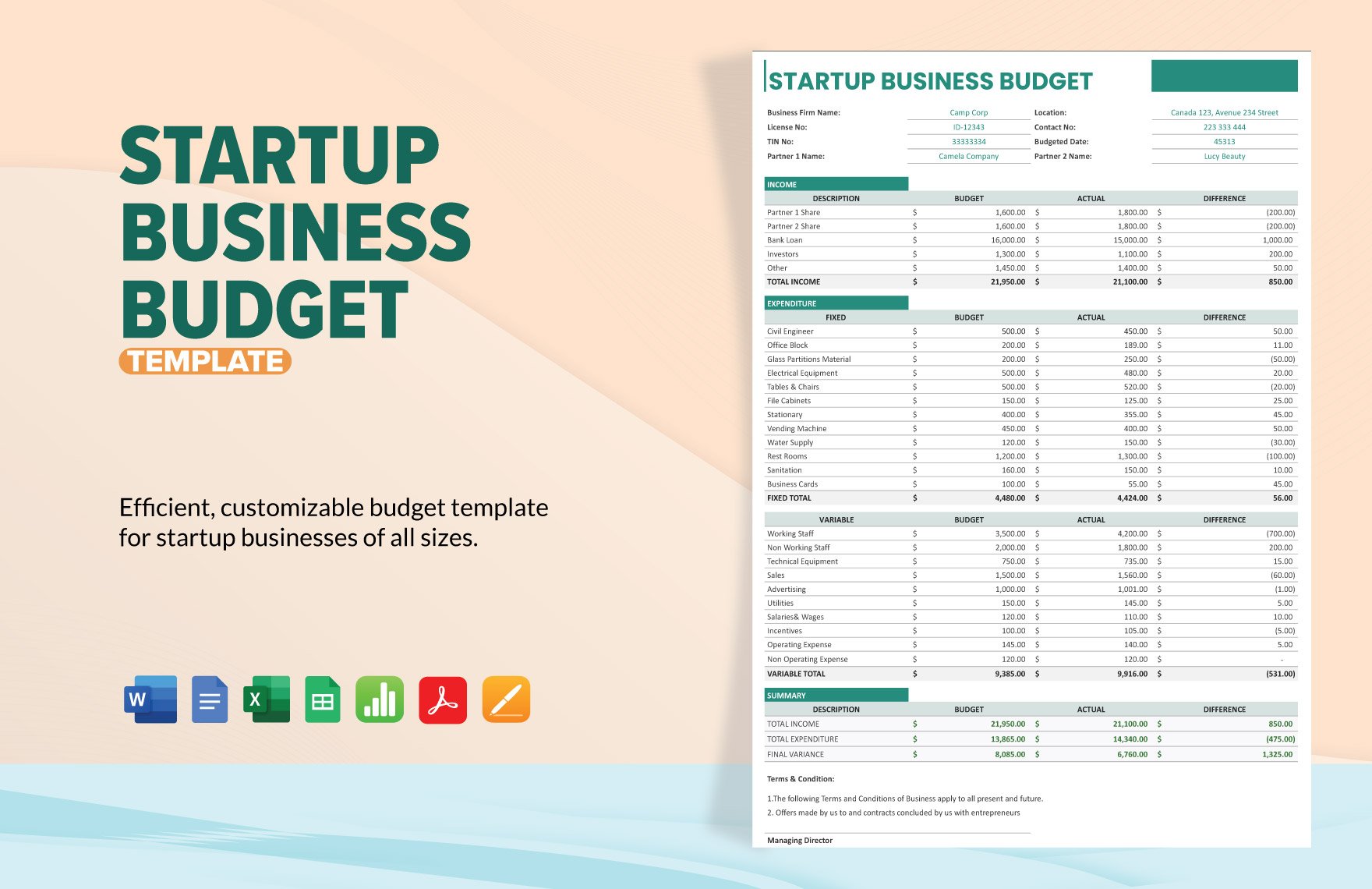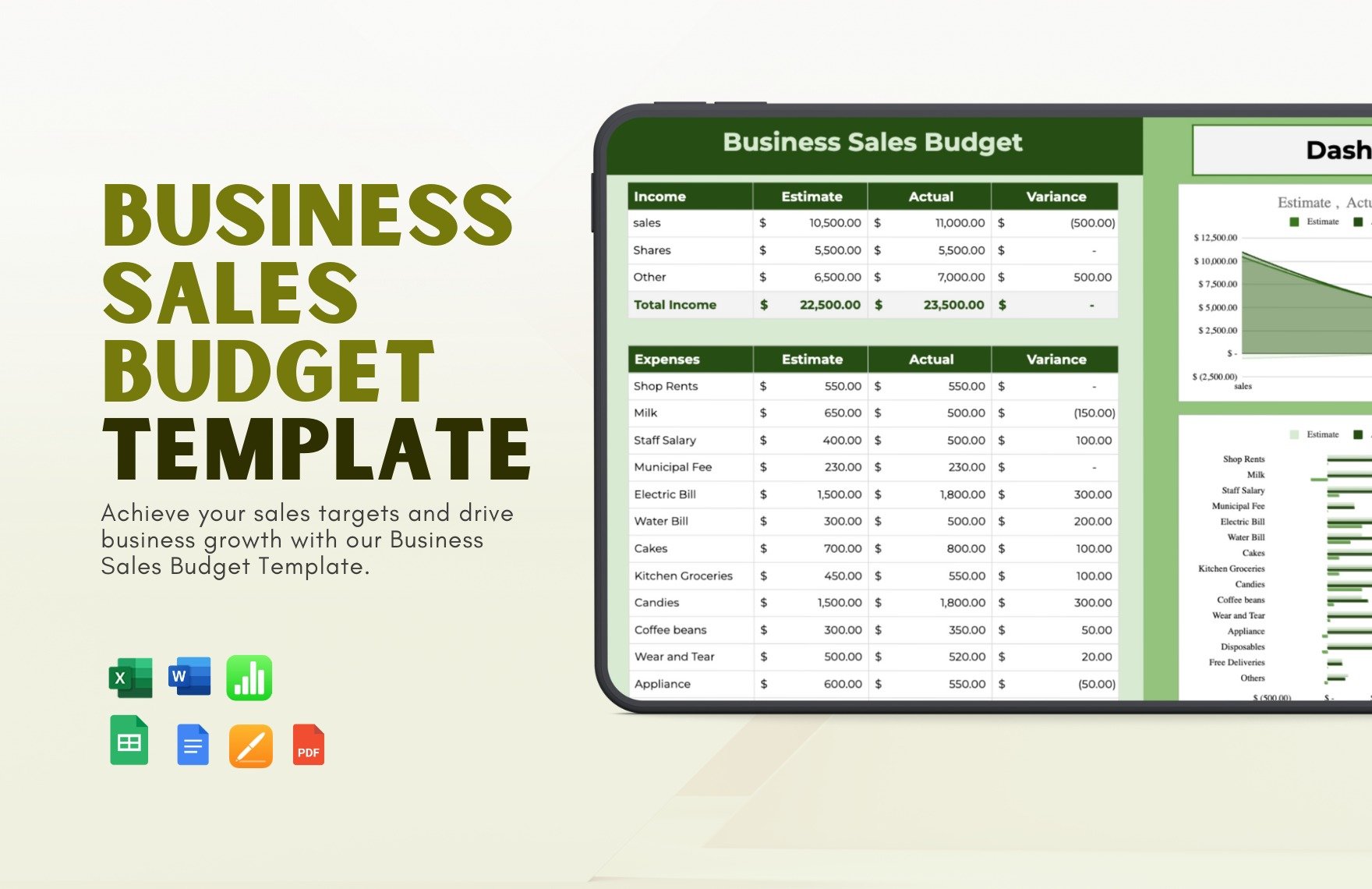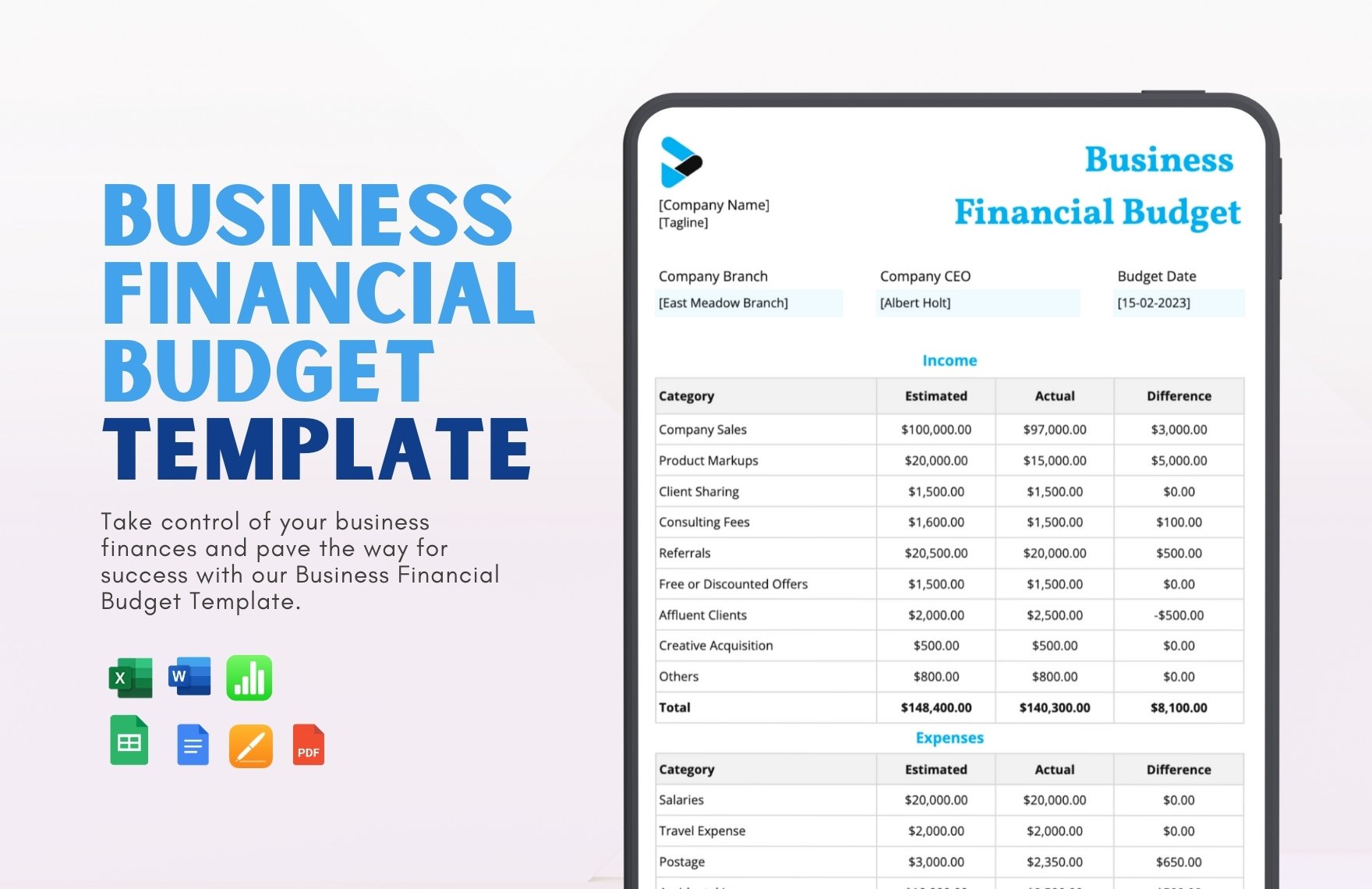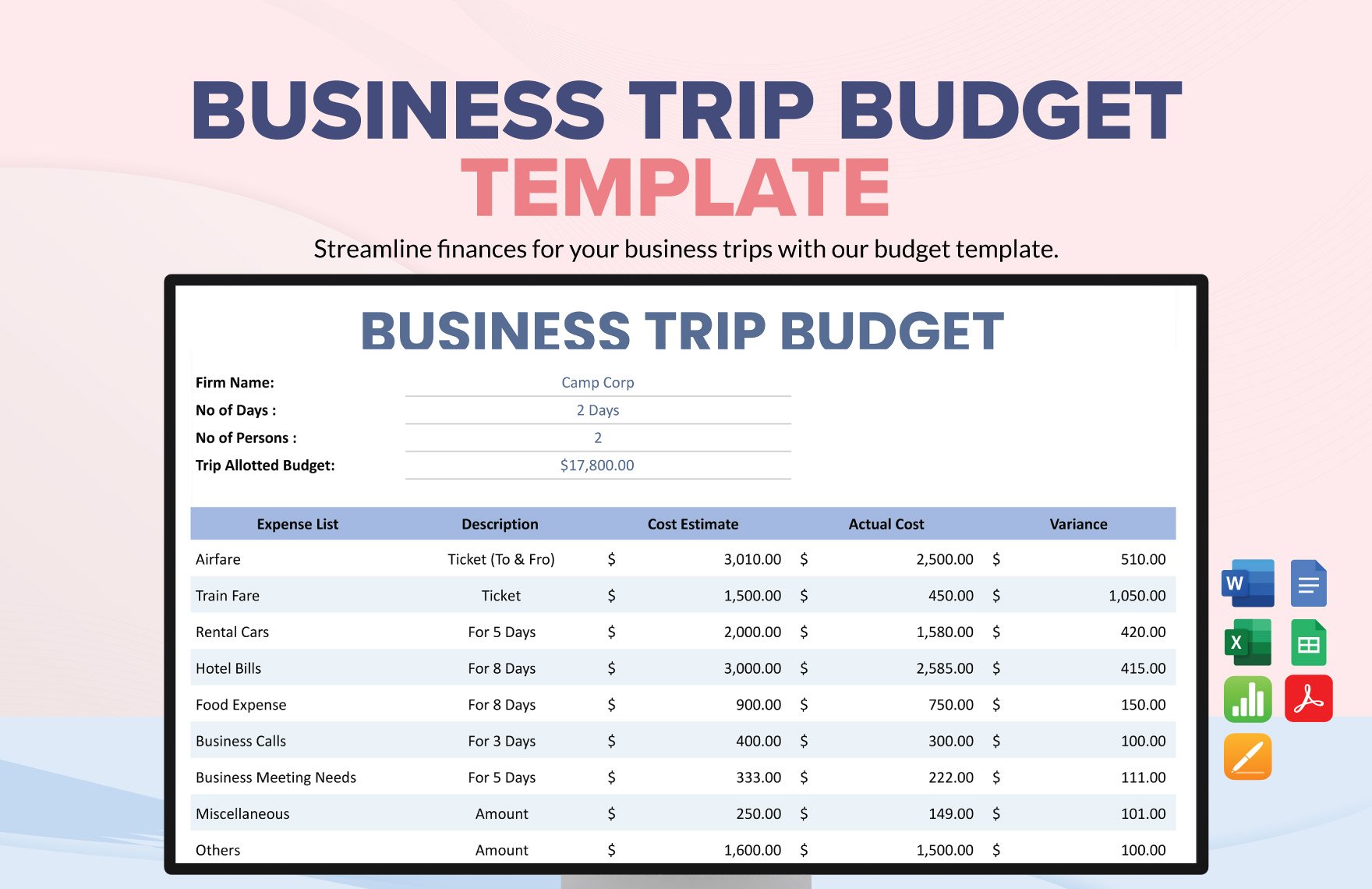Financial management is one of the most important aspects of every business. Achieve your organization’s financial and operational goals by creating a business budget. This document lays down your budget allocation for various business activities. For your convenience, we’ve managed to design Ready-Made Business Budget Templates in Apple Numbers. With these templates, it’s now easier to keep track of your business expenses. All templates are downloadable in various versions of Apple Numbers. Make use of your various Apple devices to access the templates. Experience convenient customization with its customizable feature. Download any of these printable sample templates and start budgeting effectively!
Business Budget Template in Apple Number, Imac
Estimate Your Business Spending and Track Your Revenues on Your Apple Devices with Template.net’s Business Budget Templates in Apple Numbers. Whether You’re Operating a Software Business, Startup, Construction, or Restaurant, Our Samples Help Automatically Calculate and Store All Your Expenses in an Online Digital Sheet. Download an Editable Sample Free Anytime!
How to Create Business Budget Templates in Apple Numbers
According to Clutch, 61% of small businesses failed to document their budget in 2018. If you don’t want to risk the financial health of your business, you need to document your budget.
Creating a budget will help you control the expenses of your business or organization. Using Apple Numbers software, you can easily gather data and pen them down. Find out here how you can document your business budget.
1. Gather Your Sources of Income
This step will help you identify your revenue and discover how much money your company receives on a monthly basis. Also, by gathering your income sources, you will be able to determine the pattern of the money that comes to your business.
2. Identify Fixed Costs
Fixed costs are what your business needs on a regular basis. When identifying your business fixed costs, you have to ensure that you can gather enough data since they often are modified monthly, yearly, or annually. These include rent, insurance, salaries, etc.
3. Recognize Your Variable Expenses
These variable expenses depend on the output of your product and services. These include direct materials, production supplies, commissions, etc.
4. Save Your Contingency Fund
Sometimes, things don’t happen the way we want them to. In business, there are one-time expenses that can be out of hand if we don’t have a contingency fund.
5. Put Them All Together
Since you’ve already gathered the most important aspect of your budgeting, you can now outline your revenues, expenses, and profits incurred for a specific time period. Outline them all on Apple Numbers or Microsoft Excel to calculate various numerical data. Congrats! You're ready to manage your finances.
Frequently Asked Questions
What is a Business Budget?
A business budget is an essential financial document, especially for start-up businesses. It outlines your financial needs and teaches you how to allocate your resources and formulate and effective financial action plan.
What are the Advantages of Creating a Business Budget?
The following are the advantages of creating a business budget:
1. It helps you manage your business finances effectively.
2. It’s a perfect guide in allocating your available resources to various business projects
3. It enhances your decision-making skills
4. It helps you achieve your financial goals and objectives
5. It can help in boosting the motivation of your employees.
What is the Purpose of Budgeting?
The purpose of budgeting is for proper allocation, control, and planning of your financial resources. It also plays a role in assessing the performance of your business.
What Happens When I Failed to Create a Business Budget?
If you failed to create a business budget, you’re putting your business at risk for a possible financial crisis. You will be making the same financial mistakes over again and as a result, your business may experience profit loss.
Who Can Create Business Budget?
Every business needs to document its budget to improve its financial management. Whether your business is small or big, documenting your business budget will minimize, if not prevent, the risk of rising debt pile.
